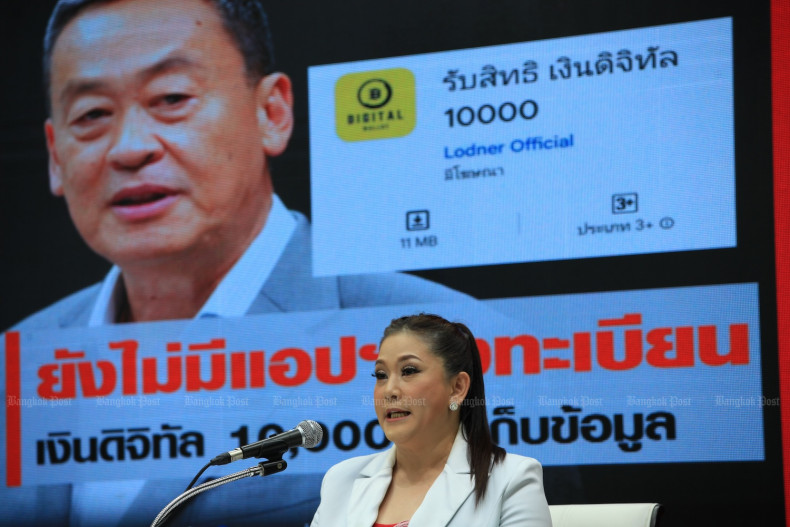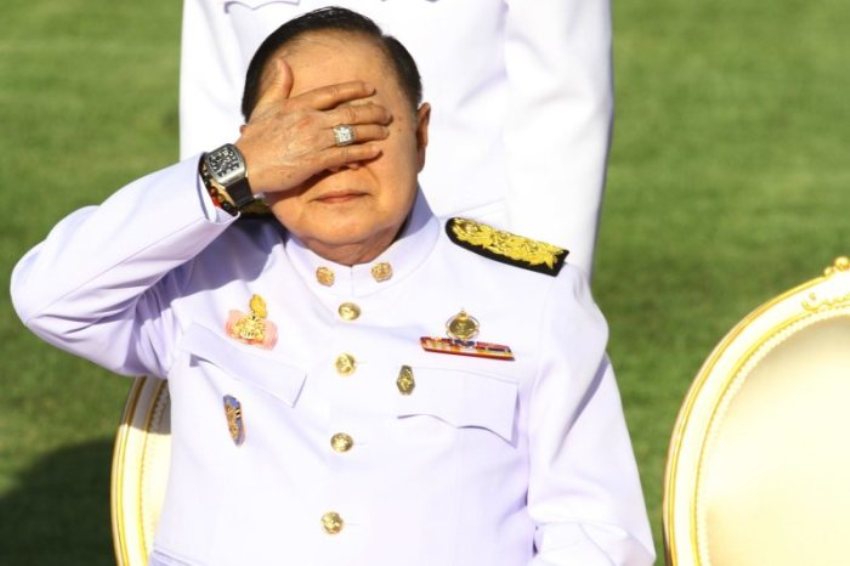Business
Thailand’s Anti Graft Body Examines 10,000-Baht Digital Money Handout

Thailand’s National Anti-Corruption Commission (NACC) has acknowledged that it is thoroughly investigating the government’s distribution of 10,000 baht worth of digital currency, and it has invited additional economic experts to join its investigation.
Some critics have warned that the project, a central economic objective of the ruling Pheu Thai Party, may become a type of policy-oriented corruption, and on Friday the anti-graft commission issued a statement saying it had a duty to investigate this possibility.
There has been rising worry, especially among senators, that the project could imperil the government’s financial stability, the statement added. However, detailed information on how the system will work and how much it will cost are not yet available.
The NACC stated that it was compelled to investigate the policy further in order to address these issues.
According to the announcement, the NACC conducted an initial evaluation of the digital wallet initiative using publicly available data and the government policy statement submitted to parliament on September 11 and 12.
An NACC member named Suwana Suwanjuta was questioned after the Senate held a question-and-answer session on October 10 regarding the project.
Former senator Rosana Rositrakul has petitioned the State Audit Office to investigate and halt the programme on Thursday, citing concerns about its potential negative effects.
Each adult in Thailand will receive 10,000 baht in digital currency via a “super app” the government is creating. Proponents argue that the program’s cost may be reduced to 560 billion baht by focusing aid on those who truly use it.
Prime Minister Srettha Thavisin has stated that the initiative might be self-financing because to the multiplier impact from expenditure, which could increase GDP growth to 5% next year.
To those waiting for the handout to materialise, Paetongtarn Shinawatra, the likely incoming leader of the Pheu Thai Party, has appealed for patience as the cabinet works out the details of its implementation.
When asked why the scheme wouldn’t launch on February 1 as planned, she cited Deputy Finance Minister Julapun Amornvivat’s declaration on Thursday that additional time is needed to develop a secure system.
According to a tweet by Sirikanya Tansakun, the deputy head of the Move Forward Party, the concept of a digital wallet is not new. She suggested that the Pheu Thai policy was influenced by a 1999 Japanese initiative with striking similarities.
She argued that the government should reevaluate the scheme because a follow-up research had shown that it had little effect in Japan.
Meanwhile, acting Democrat Party Jurin Laksanawisit said he would keep lobbying the House economic development committee to investigate the digital money plan. This is because the government has not provided sufficient details about the project’s implementation or its financial backing.

97632235
Meanwhile, on Friday, the Supreme Administrative Court refused to revisit a lower court’s ruling regarding the costly wristwatches owned by former deputy prime minister Prawit Wongsuwon.
The National Anti-Corruption Commission (NACC) had asked the court to review its order to divulge its investigation into the wristwatch dispute to political activist Veera Somkhwamkid, but the court found the NACC had no legal standing to do so.
In a December 2018 decision, the NACC found that there was insufficient evidence to support a claim that Gen Prawit improperly stated his wealth by omitting 22 high-end timepieces and jewellery items. Gen. Prawit said he returned them to their owners, who were friends.
The luxury watch investigation began after General Prawit was seen on December 4 at a Government House function wearing a platinum Richard Mille RM 029 worth about 2.5 million baht and a diamond ring.
Mr. Veera appealed the NACC’s decision and asked the Supreme Administrative Court to release the investigation’s findings, which the court did.
The court ordered the NACC to give Mr. Veera access to three different types of data. They included NACC meeting summaries, fact-finding reports, and anti-graft officers’ opinions.
The NACC only provided Mr. Veera with two sets of information and refused to share the thoughts of the anti-graft officials in charge of the investigation.
The names of the witnesses were blacked out in the materials given to Mr. Veera to preserve their identity and the integrity of the NACC, as stated by secretary-general Niwatchai Kasemmongkol in an interview conducted in August.
Thailand’s Low Cost Carriers Struggle Amid Fierce Competition
Thailand’s Low Cost Carriers Struggle Amid Fierce Competition






























